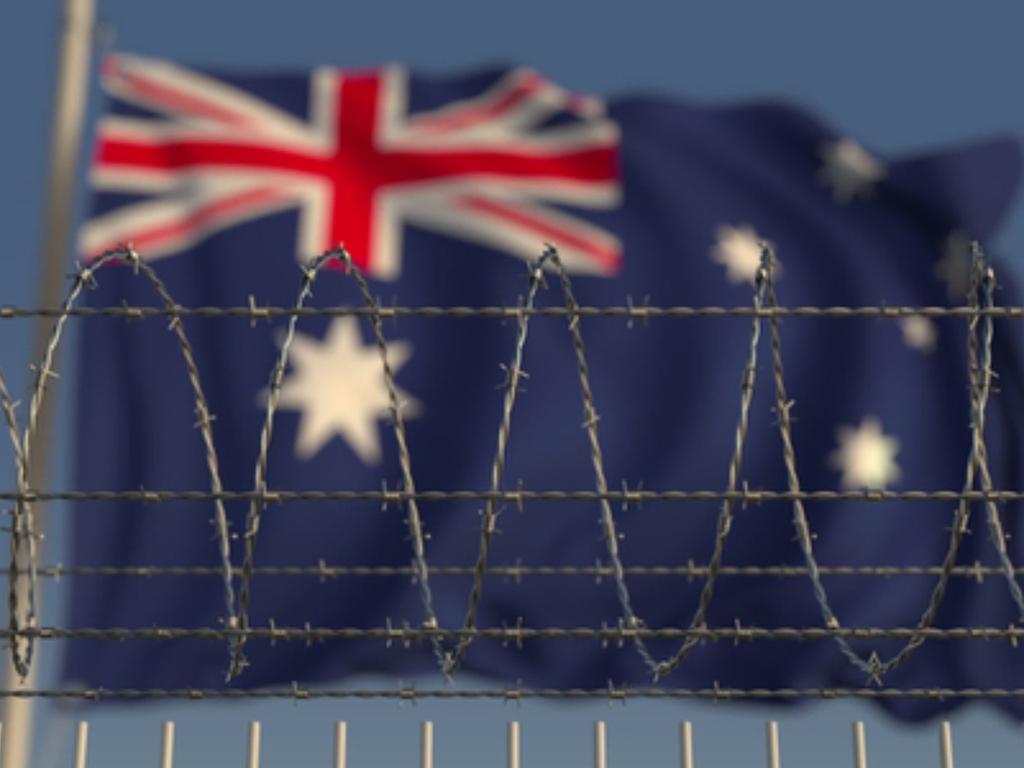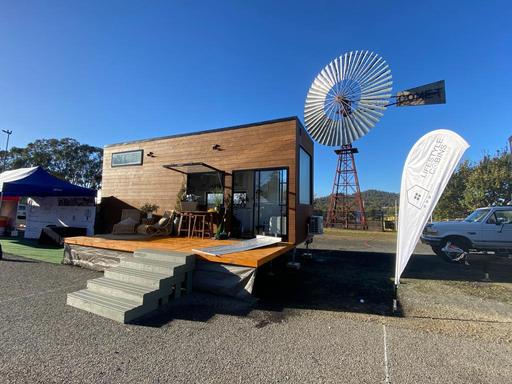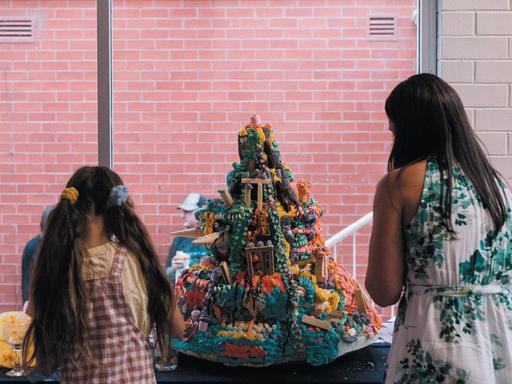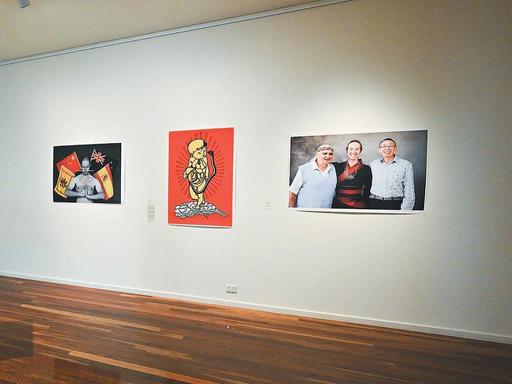when: 24 March 2021 | venue: Online | cost: Free | address: See event description for details on how to connect. | website: https://www.australiachinarelations.org/content/utsacri-webinar-%E2%80%98according-sources%E2%80%99-unpacking-national-security-reporting-australia%E2%80%99s | tickets: https://utsmeet.zoom.us/webinar/register/WN_bpADrjg2SZa6GDaLURzDFw
published: 19 Mar 2021, 5 min read
This showcased event has concluded.
Expired
National security has become a more prominent angle for Australian media reporting on relations with the People's Republic of China (PRC). Such reporting regularly cites anonymous sources.
On the one hand, the public interest is overwhelmingly served by journalism that uncovers facts previously hidden from view. On the other hand, when views are presented without attribution or documentary evidence, scepticism can be stoked about the qualifications and motivations of those behind such stories. This can lead to diminished trust in the Fourth Estate, a vital institution in well-functioning liberal democracies. It can also feed division in Australian society, which the Secretary of the Department of Foreign Affairs and Trade (DFAT), Frances Adamson, has warned that Beijing might seek to exploit to further its interests.
What ethical challenges do journalists face when they receive information from sources insisting on anonymity? Is there a consensus around what 'best-practice' looks like in handling these challenges and how does Australia stack up compared with standards overseas? What markers can readers look for to help determine which reporting they can have confidence in?
Are background briefings from government sources common on PRC-related developments and policy announcements: who hosts these and what purpose do they aim to serve? Is access ever selective or conditional? Does recent legislation make it harder for journalists to serve the public interest in national security reporting, whether it deals with the PRC or elsewhere? When it comes to challenges that the PRC presents, what are some of the best examples of where the public interest has been served by national security reporting that drew on anonymous sources?
The Australia-China Relations Institute at the University of Technology Sydney (UTS:ACRI) will host an online webinar with Professor Monica Attard, Head of Journalism, UTS and former reporter and foreign correspondent for the ABC; and Anthony Galloway, foreign affairs and national security correspondent for The Sydney Morning Herald and The Age on a panel moderated by UTS:ACRI Director Professor James Laurenceson to discuss these issues.
About the speakers
Monica Attard
Professor Monica Attard OAM spent 28 years at the ABC, working across radio and television. Professor Attard holds a Bachelor of Arts, Bachelor of Law, Order of Australia for services to journalism and is the winner of 5 Walkley Awards for excellence in journalism (including gold). She is best-known for hosting some of the ABC's flagship programs, including PM, The World Today and Media Watch, and being a reporter and foreign correspondent for AM. A journalist for 35 years, she has also been a TV and radio reporter, including for Four Corners and Lateline, a foreign correspondent and was the foundation editor of the website, The Global Mail. She was also the ABC's Russia correspondent.
Anthony Galloway
Mr Galloway is foreign affairs and national security correspondent for The Sydney Morning Herald and The Age, based in the press gallery in Parliament House, Canberra. He previously covered federal politics and state politics for the Herald Sun.
Content from UpNext.com.au. Please don't scrape website.
National security has become a more prominent angle for Australian media reporting on relations with the People's Republic of China (PRC). Such reporting regularly cites anonymous sources.
On the one hand, the public interest is overwhelmingly served by journalism that uncovers facts previously hidden from view. On the other hand, when views are presented without attribution or documentary evidence, scepticism can be stoked about the qualifications and motivations of those behind such stories. This can lead to diminished trust in the Fourth Estate, a vital institution in well-functioning liberal democracies. It can also feed division in Australian society, which the Secretary of the Department of Foreign Affairs and Trade (DFAT), Frances Adamson, has warned that Beijing might seek to exploit to further its interests.
What ethical challenges do journalists face when they receive information from sources insisting on anonymity? Is there a consensus around what 'best-practice' looks like in handling these challenges and how does Australia stack up compared with standards overseas? What markers can readers look for to help determine which reporting they can have confidence in?
Are background briefings from government sources common on PRC-related developments and policy announcements: who hosts these and what purpose do they aim to serve? Is access ever selective or conditional? Does recent legislation make it harder for journalists to serve the public interest in national security reporting, whether it deals with the PRC or elsewhere? When it comes to challenges that the PRC presents, what are some of the best examples of where the public interest has been served by national security reporting that drew on anonymous sources?
The Australia-China Relations Institute at the University of Technology Sydney (UTS:ACRI) will host an online webinar with Professor Monica Attard, Head of Journalism, UTS and former reporter and foreign correspondent for the ABC; and Anthony Galloway, foreign affairs and national security correspondent for The Sydney Morning Herald and The Age on a panel moderated by UTS:ACRI Director Professor James Laurenceson to discuss these issues.
About the speakers
Monica Attard
Professor Monica Attard OAM spent 28 years at the ABC, working across radio and television. Professor Attard holds a Bachelor of Arts, Bachelor of Law, Order of Australia for services to journalism and is the winner of 5 Walkley Awards for excellence in journalism (including gold). She is best-known for hosting some of the ABC's flagship programs, including PM, The World Today and Media Watch, and being a reporter and foreign correspondent for AM. A journalist for 35 years, she has also been a TV and radio reporter, including for Four Corners and Lateline, a foreign correspondent and was the foundation editor of the website, The Global Mail. She was also the ABC's Russia correspondent.
Anthony Galloway
Mr Galloway is foreign affairs and national security correspondent for The Sydney Morning Herald and The Age, based in the press gallery in Parliament House, Canberra. He previously covered federal politics and state politics for the Herald Sun.
Go see National security reporting in AU's discussion of the PRC 2021.

National security reporting in AU's discussion of the PRC 2021 is on 24 March 2021. See start and end times below. Conveniently located in Sydney. Call 02 9514 8905 for details. Visit their website at https://www.australiachinarelations.org/content/utsacri-webinar-%E2%80%98according-sources%E2%80%99-unpacking-national-security-reporting-australia%E2%80%99s.
Are we missing something? Help us improve this article. Reach out to us.
Event Details
Are you looking for 'Things To Do' ideas?
Upnext Team
We love helping people
See recent events discovered by Upnext Team

Expired
Adelaide Tiny Home Expo 2023
Discover Tiny Houses and why they are taking Australia by storm. Tiny houses on and off wheels, luxury Airbnb models, m...

Expired
Drag Bingo & Cocktail Fun! 2023
Celebrate a Sunday afternoon with Bingo with a difference...Drag Bingo.Join hosts Fifi and Princess Laya as they perform...

Expired
Have You Eaten? 2023
Have You Eaten? is an immersive art exhibition that invites you to consider your perfect picnic, favourite foods, and co...

Expired
Punk Protest Propaganda 2023
Discover The Political Art of Fahmi Reza, a captivating exhibition at Nexus Gallery.Fahmi Reza, a self-taught Malaysian ...













